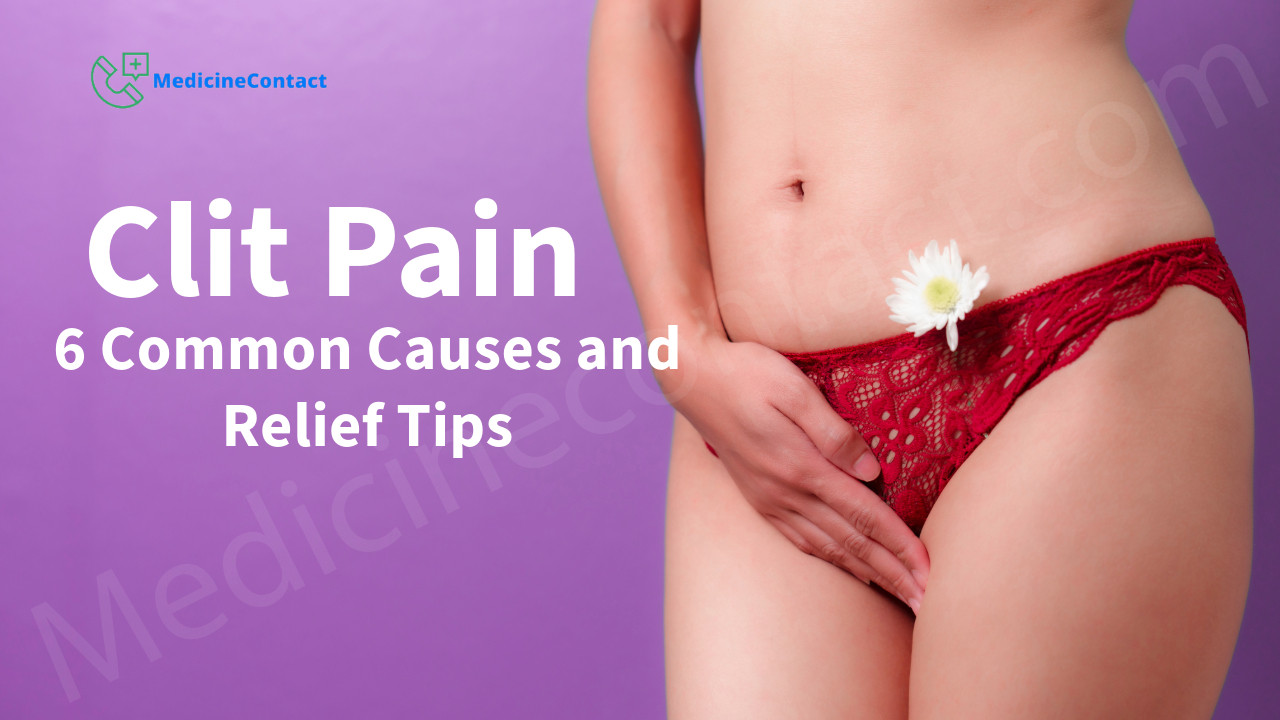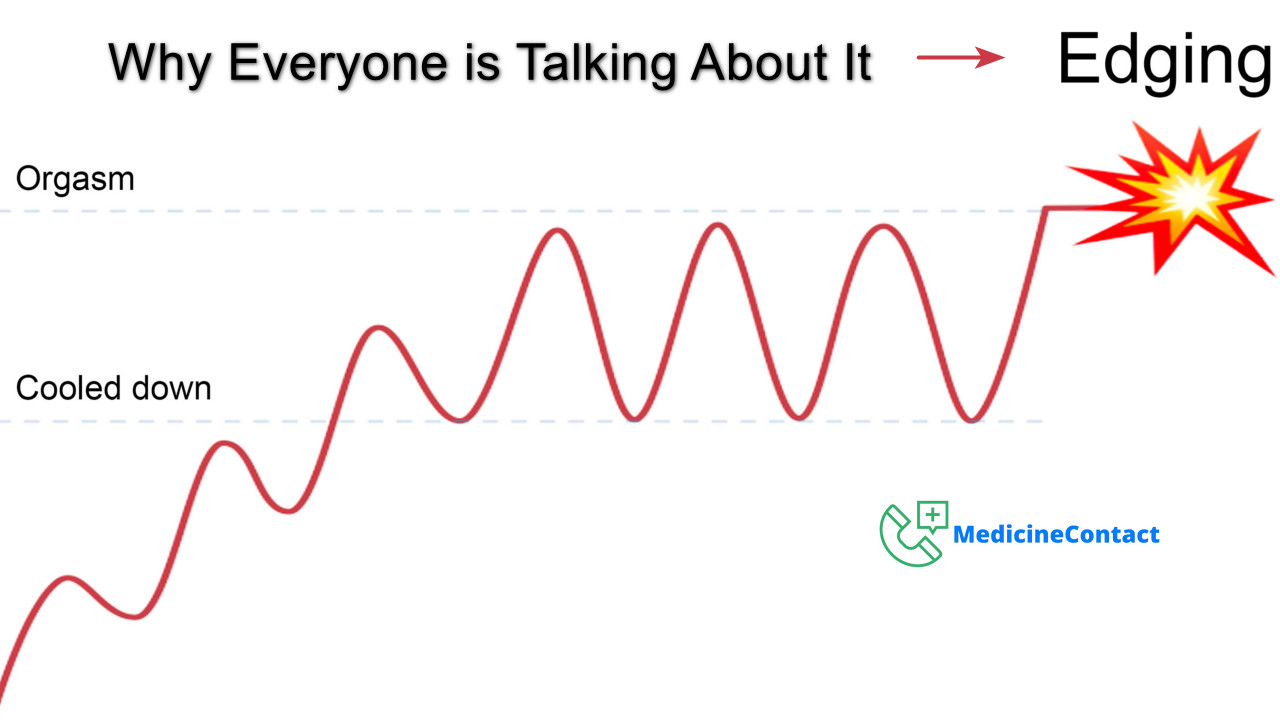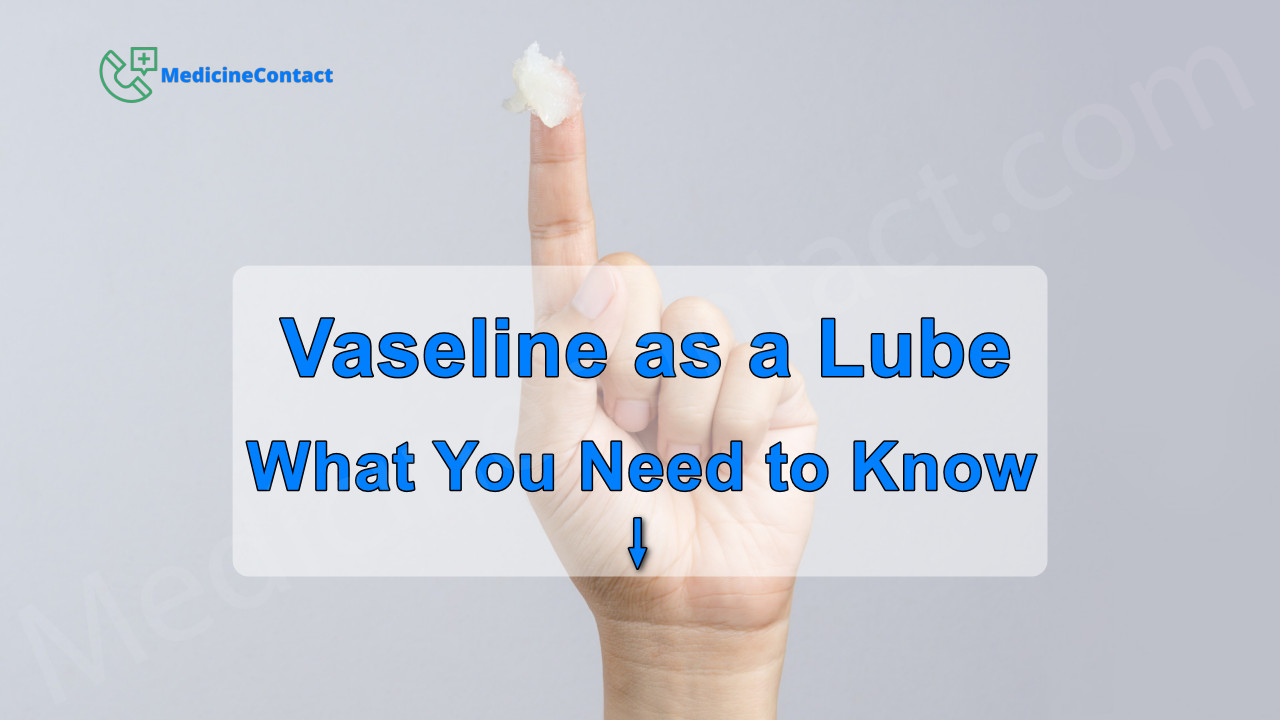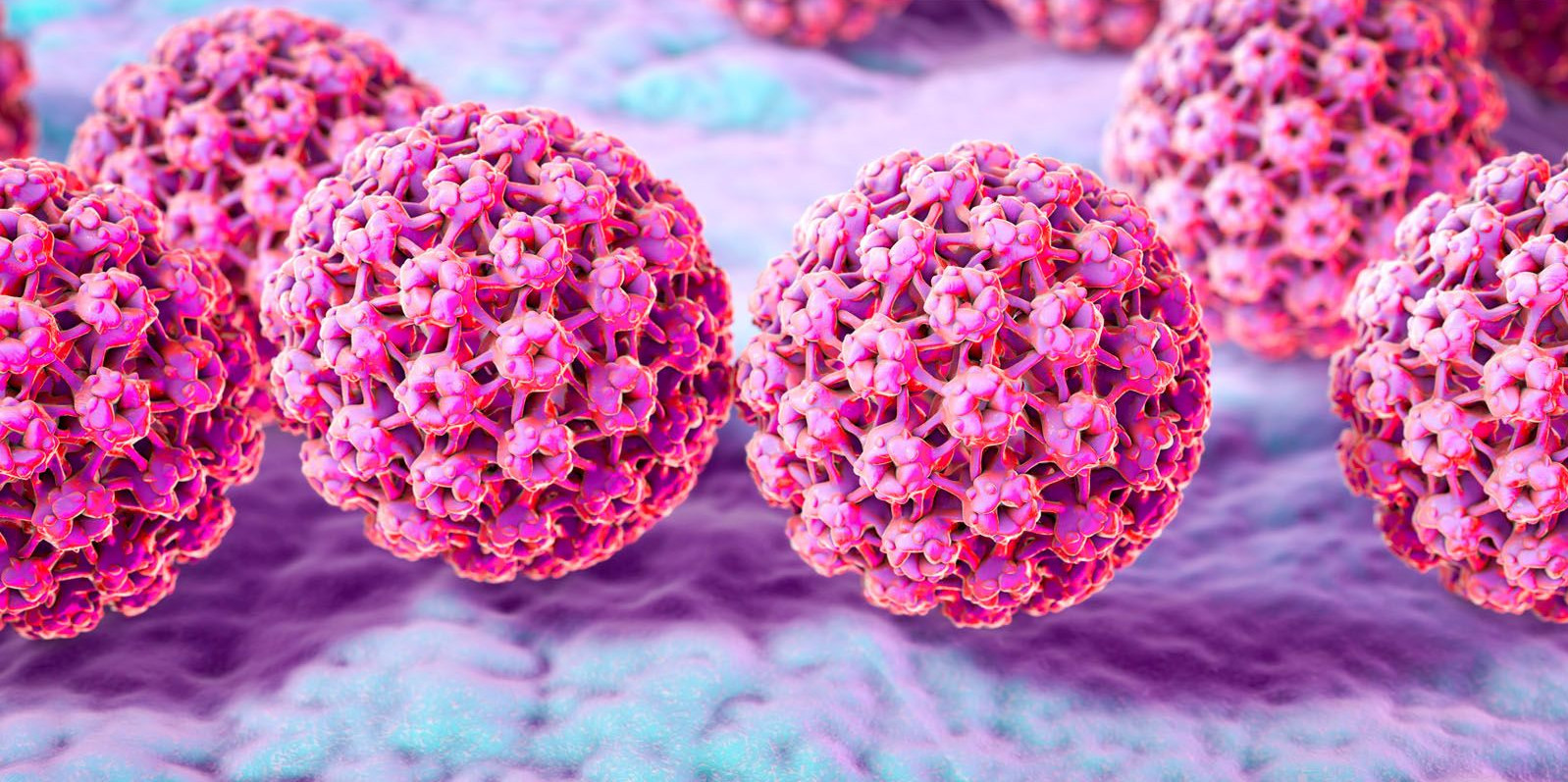
Introduction
Experiencing clit pain can be both alarming and disruptive. This delicate yet powerful part of your anatomy, housing approximately 8,000 nerve endings, plays a crucial role in sexual pleasure. When discomfort arises, it can impact not just your physical health but also your emotional well-being and intimate relationships.
Addressing clitoral discomfort is essential for maintaining overall health. Unresolved pain in this area might signal underlying conditions that require attention. Whether you're wondering "why does my clit hurt when touched" or seeking ways to improve clitoral health, understanding the causes is the first step toward relief.
In this article, we'll cover:
- Common reasons behind clit pain.
- Practical tips to alleviate discomfort.
- Signs that indicate you should see a doctor.
Let's get started!
Understanding Clitoral Anatomy and Pain Sensation
The Clitoris: A Brief Overview
The clitoris is a key part of the vulva, playing an essential role in sexual pleasure due to its high concentration of nerve endings. Situated at the front where the inner lips meet, this small yet powerful organ is often compared to an iceberg – what you see outside is just a small part of its entire structure.
Nerve Endings and Sensitivity
About 8,000 nerve endings make the clitoris highly sensitive to touch and stimulation. This complex network not only enhances pleasurable sensations but can also make the area prone to discomfort and pain. Common symptoms include:
- Burning
- Stinging
- Throbbing
- Itching
- Rawness
If you're asking yourself, "why does my clitoris hurt?" or "my clitorus hurts," understanding this complex anatomy can offer valuable insights into potential causes and solutions for your discomfort.
Common Reasons Behind Clit Discomfort
1. Infections
Infections are a common culprit behind clitoral pain. Urinary tract infections (UTIs), sexually transmitted infections (STIs) such as herpes and chlamydia, and other bacterial or fungal infections can lead to significant discomfort. These infections can cause symptoms like burning, itching, and even pain during urination or sexual activities.
Example: A person experiencing a UTI might find themselves asking, "Why does my clit hurt when I pee?" This pain arises due to the proximity of the urinary tract to the clitoris, where inflammation from the infection can cause referred pain.
2. Skin Conditions
Various skin conditions can also contribute to clitoral pain:
- Vulvar Dermatitis: This condition involves inflammation of the vulvar skin, often caused by irritants like soaps, lotions, or even laundry detergents.
- Lichen Sclerosus: A chronic skin disorder causing thin, white patches on the vulva can be itchy and painful.
- Allergies: Reactions to personal care products or clothing materials may result in discomfort around the clitoral area.
Example: Someone might wonder, "Why does my clit hurt when I touch it?" If they are experiencing an allergic reaction or dermatitis, touching the area would exacerbate irritation and pain.
3. Physical Trauma
Physical trauma is another significant factor that can lead to temporary sensitivity issues in the clitoral region:
- Childbirth: The physical stress of childbirth can cause swelling and tenderness in the vulvar area, including the clitoris.
- Sexual Activity: Injury from vigorous sexual activity or improper use of sexual toys can lead to clitoral pain.
- Surgical Procedures: Surgeries involving the pelvic region may result in post-operative discomfort affecting the clitoris.
Example: After childbirth, someone might find themselves asking, "Why does my clit hurt on my period?" Hormonal changes during menstruation could amplify any pre-existing tenderness caused by childbirth-related trauma.
Understanding these common reasons behind clit discomfort can help in identifying potential causes and seeking appropriate treatment. It's important to consult with a healthcare professional for accurate diagnosis and effective treatment options for these conditions, which may include medication for infections or dermatological treatments for skin-related issues.
The Role of Nerve Compression, Hormonal Fluctuations, and Psychological Factors in Clitoral Pain
4. Nerve Compression
Nerve-related causes of clit discomfort can be significantly debilitating. One key condition to consider is pudendal nerve entrapment. This nerve, which runs through the pelvis, plays a crucial role in innervating the clitoris. When compressed or irritated, it can lead to persistent pain sensations not just in the clitoris but throughout the pelvic region.
Symptoms
Burning, stinging, or throbbing sensations localized around the clitoral area.
Causes
Chronic pressure from sitting for long periods, cycling, or even certain surgical procedures.
Management
Physical therapy focusing on pelvic floor muscles, anti-inflammatory medications, and in some cases, surgical intervention to decompress the nerve.
5. Hormonal Changes
Hormonal changes impacting sensitivity are another significant factor behind clit discomfort. Hormones like estrogen and testosterone play a critical role in maintaining the health and sensitivity of genital tissues.
Menstrual Cycle
Hormone levels fluctuate throughout the menstrual cycle, potentially leading to increased sensitivity or discomfort at different times.
Menopause
During menopause, decreased estrogen levels can result in thinning of vaginal and vulvar tissues, causing dryness and irritation.
Pregnancy and Postpartum
Hormonal shifts during pregnancy and after childbirth can also affect clitoral sensitivity.
Addressing these issues often involves hormone replacement therapies or natural supplements to balance hormone levels effectively.
6. Psychological Factors
The mind-body connection is profound when it comes to experiencing and interpreting clitoral discomfort. Psychological factors such as stress, anxiety, and past trauma can amplify pain sensations.
Stress
Chronic stress can lead to muscle tension in the pelvic region, exacerbating pain.
Anxiety and Depression
These conditions can heighten sensitivity to pain due to an altered perception of discomfort.
Therapeutic Support
Counseling or sex therapy can be beneficial in addressing these psychological factors. Techniques such as cognitive-behavioral therapy (CBT) and mindfulness practices may reduce pain perception by helping individuals manage stress and emotional responses effectively.
Understanding why your clit hurts involves examining both physical and psychological dimensions. By addressing nerve compression, hormonal changes, and psychological factors comprehensively, it's possible to find relief from persistent clitoral pain.
MedlinePlus: Pelvic Pain University of Michigan Health: Pudendal Neuralgia
When to Seek Medical Attention for Persistent Clit Pain?
Persistent clitoral pain can significantly impact daily life and sexual health. Recognizing when it’s time to consult a healthcare provider is crucial.
Signs Indicating It's Time to Consult a Doctor
If you experience any of the following symptoms, it may be time to seek medical advice:
- Pain lasting more than a few days: If your clit hurts continuously or intermittently over an extended period.
- Severe discomfort: Intense pain that affects your ability to perform routine activities.
- Associated symptoms: Noticeable changes like swelling, redness, or unusual discharge.
- Pain during specific activities: Persistent clit sore after sex or other physical activities.
- Recurring issues: Frequent episodes of discomfort without an apparent cause.
What to Expect During a Medical Evaluation
When consulting healthcare providers about vaginal health concerns, here's what you might expect:
1. Medical History Review
- Detailed questions about the onset, duration, and nature of your pain.
- Inquiries regarding any associated symptoms or potential triggers.
2. Physical Examination
- Visual and tactile examination of the external genitalia.
- Potentially a pelvic exam to rule out internal causes.
3. Diagnostic Tests
- Cultures or swabs to check for infections.
- Blood tests to evaluate hormonal levels or other systemic conditions.
4. Further Referrals
If needed, referral to specialists such as gynecologists, dermatologists, or neurologists for comprehensive care.
Early consultation can lead to timely diagnosis and effective treatment plans, ensuring better management of symptoms and overall comfort.
Effective Treatment Options for Alleviating Clit Pain Symptoms
Medications
When dealing with pain in the clitoris, a healthcare professional may prescribe specific medications to address the underlying cause. Depending on the diagnosis, common treatments include:
- Antibiotics: Used to treat bacterial infections such as UTIs or sexually transmitted infections (STIs). These medications are effective in eliminating bacteria, reducing inflammation, and alleviating discomfort.
- Antifungal Treatments: Often prescribed for yeast infections, these medications help eradicate fungal overgrowth and soothe associated irritation.
- Topical Steroids: Applied directly to the affected area, these can reduce inflammation and provide relief from skin conditions like lichen sclerosus.
- Pain Relievers: Over-the-counter options like ibuprofen or prescription medications may be recommended to manage pain levels effectively.
Physical Therapy
Exploring physical therapy options can also be beneficial for those experiencing chronic pelvic pain syndromes involving hypersensitivity around the vulvar region. Techniques employed by specialized therapists include:
- Pelvic Floor Rehabilitation: This focuses on strengthening and relaxing the pelvic floor muscles. Targeted exercises can alleviate tension and improve muscle coordination, which may result in reduced clitoral pain.
- Biofeedback Therapy: Utilizes sensors to monitor muscle activity in the pelvic region. Patients learn how to control and relax their muscles through visual or auditory feedback, aiding in pain management.
- Manual Therapy: Hands-on techniques performed by a trained therapist can help release muscle tightness, improve circulation, and reduce nerve compression that could be contributing to discomfort.
Combining these treatment modalities with lifestyle adjustments and proper hygiene practices often leads to significant improvements in symptoms. Always consult with a healthcare provider to determine the most appropriate course of action based on individual circumstances.
Practical Tips for Maintaining Optimal Vulvar Health and Well-being
Personal Hygiene Practices
Maintaining optimal vulvar health begins with gentle cleansing routines that preserve the delicate balance of natural flora. Here are some essential tips:
- Use Mild, Unscented Soap: Opt for a gentle, pH-balanced cleanser specifically designed for sensitive skin.
- Clean with Water: Rinse the vulvar area with lukewarm water daily; avoid using harsh or scented products which can disrupt the natural flora.
- Pat Dry: After washing, pat the area dry with a soft towel instead of rubbing to minimize irritation.
- Avoid Douches: Douching can disrupt the natural balance of bacteria and may lead to infections.
Lifestyle Adjustments
Incorporating stress management techniques into your daily routine can significantly enhance overall sexual wellness. Chronic stress is known to exacerbate physical symptoms, including clitoral discomfort. Consider these lifestyle adjustments:
- Mindfulness Practices: Engage in mindfulness meditation or yoga to reduce stress levels and promote relaxation.
- Regular Exercise: Physical activity can improve blood flow and reduce tension, benefiting overall reproductive health.
- Healthy Diet: A balanced diet rich in fruits, vegetables, and lean proteins supports hormonal balance and overall well-being.
- Adequate Sleep: Ensure you get 7-9 hours of quality sleep each night for optimal body function and stress reduction.
Understanding why your clitoris hurts involves recognizing the complex nature of clitoral pain. By integrating these personal hygiene practices promoting vulval comfort along with lifestyle adjustments, you can play an active role in maintaining your vulvar health and well-being.
These strategies not only help alleviate existing discomfort but also serve as preventive measures against future issues.
Finding Support Beyond Medical Treatments: Counseling & Community Resources for Chronic Clit Pain
If you're dealing with the emotional effects of long-term painful intercourse or other genital issues, therapeutic support can be incredibly helpful. It's important to address both the mental and emotional aspects of clitoral pain for overall well-being.
Therapeutic Support Options
- Sex Therapy: Working with a certified sex therapist can help address issues related to sexual pain and intimacy. These professionals can provide strategies to manage discomfort during sexual activities and improve overall sexual health.
- Psychotherapy: Engaging in regular sessions with a psychotherapist can assist in coping with anxiety, depression, or trauma associated with chronic clitoral pain. Cognitive-behavioral therapy (CBT) is particularly effective in re-framing negative thought patterns.
Community Resources
- Support Groups: Connecting with others who have similar experiences can offer emotional relief and practical advice. Online forums and local support groups provide a safe space to share stories and coping strategies.
- Educational Workshops: Many organizations offer workshops focused on sexual health and wellness. These sessions often cover topics such as pain management techniques, mindfulness practices, and stress reduction exercises.
By exploring these therapeutic support options, individuals can gain tools and resources needed to navigate the complexities of living with chronic clit pain, enhancing both their mental and physical health.
For those seeking further information or community support, numerous online platforms and local organizations are available to provide guidance and connection.
Conclusion
Addressing clit pain promptly is crucial for maintaining overall well-being and sexual health. Understanding the complexity behind "why does my clit hurt" allows individuals to approach the situation with informed strategies.
Taking proactive steps can significantly alleviate symptoms:
- Seek Medical Attention: If discomfort persists, consulting a healthcare professional ensures accurate diagnosis and tailored treatment plans.
- Explore Treatment Options: Medications, physical therapy, and lifestyle adjustments offer various pathways to relief.
- Utilize Support Networks: Counseling and community resources provide valuable psychological support for those affected by chronic pain.
By integrating these approaches, managing clit pain effectively becomes achievable. Remember, you don't have to face this challenge alone; numerous resources are available to assist you on your journey towards comfort and well-being.
FAQs (Frequently Asked Questions)
What are common reasons for experiencing clitoral pain?
Common reasons for experiencing clitoral pain include infections such as UTIs and STIs, skin conditions affecting the vulva like vulvar dermatitis and lichen sclerosus, and physical trauma resulting from childbirth or sexual activity. Additionally, nerve compression, hormonal fluctuations, and psychological factors may also contribute to discomfort.
When should I seek medical attention for clitoral pain?
You should seek medical attention if you experience persistent clitoral pain that interferes with daily activities, discomfort during sexual activity, or if the pain is accompanied by other symptoms like unusual discharge or fever. Consulting a healthcare provider can help identify underlying issues and appropriate treatments.
How can I maintain optimal vulvar health?
To maintain optimal vulvar health, practice gentle personal hygiene routines that promote balance without disrupting natural flora. This includes using mild soaps, wearing breathable cotton underwear, and avoiding irritants. Additionally, incorporating stress management techniques into your daily routine can enhance overall sexual wellness.
What treatment options are available for alleviating clitoral pain?
Treatment options for alleviating clitoral pain may include prescribed medications such as antibiotics or antifungal treatments based on specific diagnoses. Physical therapy focusing on pelvic floor rehabilitation techniques may also provide relief from chronic pelvic pain syndromes involving hypersensitivity in the vulvar region.
What role do nerve compression and hormonal changes play in clitoral pain?
Nerve compression, such as pudendal nerve entrapment, can contribute to persistent clitoral pain by affecting sensation in the area. Hormonal changes throughout the menstrual cycle or during menopause can also impact sensitivity and comfort levels in the clitoral region.
Are there support resources available for those dealing with chronic clitoral pain?
Yes, there are therapeutic support options available for individuals experiencing psychological impacts from long-term clitoral pain or painful intercourse. Seeking counseling or joining support groups can provide valuable resources and community connections to help manage these challenges.
Disclaimer: This article is for informational purposes only and does not constitute medical advice. Always consult with a healthcare professional before starting any new treatment regimen.




